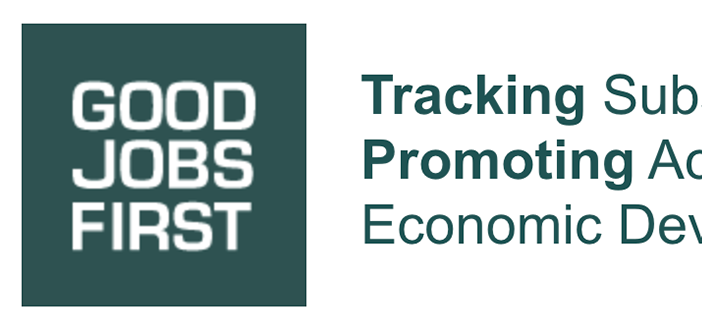Sara Hinkley and Fiona Hsu
Executive Summary
An analysis of 122 audits of state economic development programs in 44 states reveals a troubling policy landscape. In a time when these programs – such as tax breaks, grants, and loans – are rapidly proliferating, many audits reveal that taxpayers are getting a poor bang for their buck.
Over the last decade, auditors have repeatedly found primitive oversight by development agencies, including failures to monitor companies that have received development subsidies to determine if they have met their performance goals. In a version of “garbage in, garbage out,” many auditors have found state agency data to be so poor or unverified as to effectively preclude program evaluation.
Other audits have found that agencies and/or programs lack formal goals or benchmarks – that is, no measure of success or failure – so that even if an agency has collected the required data, there is no way to evaluate what the information means. And perhaps most disheartening, the few audits that do evaluate effectiveness find little evidence that development programs are affecting economic conditions in the states.
Worse, some audits find that development agencies are an easy mark, tolerating sky-high loan default rates, awarding grants and loans to companies that have failed to fulfill their performance obligations, or even committing ethical breaches that provoke criminal investigations. Our review also led to conclusions about the state of performance evaluation in the states. We are struck first that few audits evaluate a program or agency’s effectiveness. At its core, an audit should also be a cost-benefit analysis focused on what the public is getting for its dollar. Most of the audits we reviewed do a poor job of determining effectiveness – in large part because they are hampered by lack of data and objectives – and most fail to compare any of their findings about
outcomes to a program’s costs.
Second, we find that performance audits of development programs are conducted far too infrequently. Although financial and compliance audits are done regularly in nearly every state, evaluations of performance are rare. Only 17 states subject agencies to regular performance auditing. We estimate that in those states that do not, development programs are only audited about once every 15 years. Given the rapidly-changing nature of the U.S. economy and the need for development strategies to adapt to those changes, such infrequent audits are clearly inadequate.
Download here: https://www.goodjobsfirst.org/sites/default/files/docs/pdf/stateaudits.pdf
